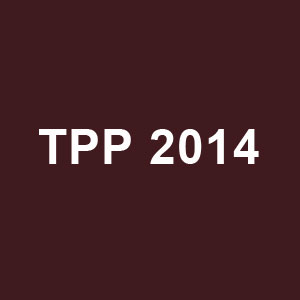Who Are the Puppeteers? The Current Philosophical Conflict Over Plato’s Work in Stage
Since Greek Antiquity, the encounter between philosophy and theatre has been marked by disagreement. In such contentious space another term emerges: politics. In this paper I will argue that politics operates not as the neutral arbiter of the ancient conflict between philosophers and thespians—essences and appearances, truth and representation—nor as a third independent contender, but as the clash that prompts their mutual confusion, enabling philosophy to perform and theater to speak the truth.
I develop this argument through a reinterpretation of the puppeteers in Plato’s allegory of the cave. Plato characterized democracy as a form of theatrocracy, excluding the poets from his ideal city. He also, however, wrote the terms of such exclusion in dramatic form and his philosophical dialogues were performed in front of an audience. The Republic, then, (380 BC) participates in the very same journeys it seeks to separate: the upward philosophical trajectory outside the cave and into the light (truth), and the downward poetic trajectory inside the cave and into the darkness (fiction). Plato opens with philosophy to conclude with poetry: the first book is devoted to the Socratic method of the elenchus, the last one to the Myth of Er. Mapping the political struggle between theater and philosophy onto the philosophical struggle over the meaning of Plato’s work, I will animate three theoretical conflicts over The Republic: i) Alain Badiou v. Jacques Rancière (who counts as puppeteer?); ii) Martin Puchner v. Hannah Arendt (what is the political status of the puppet?); and iii) Adriana Cavarero v. Jacques Derrida (is this puppet a ventriloquist?).
I am a PhD candidate in political science at the University of Massachusetts, Amherst, and the 2014 Karl Loewesntein Fellow at Amherst College. My dissertation, entitled, “Antigone Claimed, ‘I Am a Stranger’: Democracy, Membership and Unauthorized Immigration,” uses Sophocles’ classical tragedy to problematize democracy’s vexed relation to the question of foreignness. I sketched the argument in “Antigone claimed: ‘I am a Stranger!’ Political Theory and the Figure of the Stranger,” published in Hypatia: ‘Crossing Borders,’ 2013. I also used Antigone to provide a different interpretation of the ongoing war in Colombia, in the novel that I recently submitted to the literary contest ‘Premio Latinoamericano de Primera Novela Sergio Galindo,’ entitled, Antigone in Puerto Berrío: A Tragi-Comedy in Two Acts. In my most recent article, “Can the Subaltern Smile? Oedipus Without Oedipus”—indebted to my participation in the 2012 Mellon School of Theater and Performance at Harvard and currently under revision for publication—, I advocate for a dramaturgical conception of political theory that re-conceptualizes the practice of de-colonial theory by attending to the intersection between theater and philosophy.

